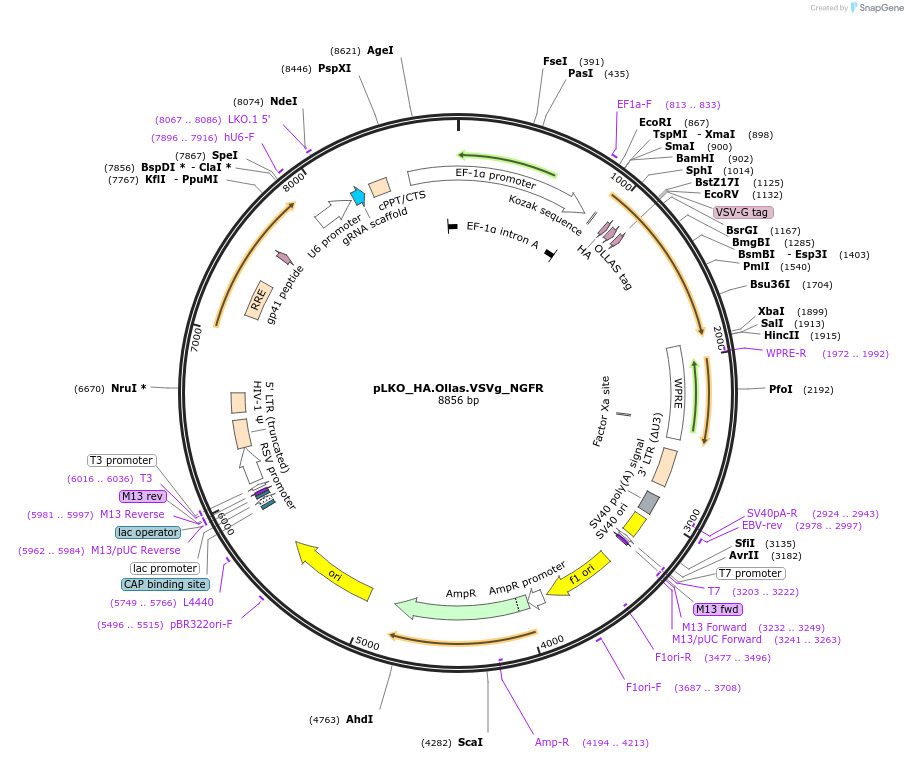pLKO_HA.Ollas.VSVg_NGFR
(Plasmid
#158329)
-
PurposeProtein Barcode (Pro-Code) for vector/cell tracking. Contains U6 trRNA cassette for sgRNA cloning. Enables phenotypic CRISPR screens at a single cell resolution (using cytometry).
-
Depositing Lab
-
Sequence Information
Ordering
| Item | Catalog # | Description | Quantity | Price (USD) | |
|---|---|---|---|---|---|
| Plasmid | 158329 | Standard format: Plasmid sent in bacteria as agar stab | 1 | $89 | |
Backbone
-
Vector backbonepLKO
- Backbone size w/o insert (bp) 9000
-
Vector typeLentiviral, CRISPR
Growth in Bacteria
-
Bacterial Resistance(s)Ampicillin, 100 μg/mL
-
Growth Temperature37°C
-
Growth Strain(s)NEB Stable
-
Copy numberHigh Copy
Gene/Insert
-
Gene/Insert namePro-Code Tagged human dNGFR
-
SpeciesH. sapiens (human)
-
Insert Size (bp)1000
-
MutationTruncation of the signaling domain
-
Entrez GeneNGFR (a.k.a. CD271, Gp80-LNGFR, TNFRSF16, p75(NTR), p75NTR)
- Promoter EF1a
-
Tag
/ Fusion Protein
- HA.Ollas.VSVg (N terminal on insert)
Cloning Information
- Cloning method Restriction Enzyme
- 5′ cloning site Unknown (unknown if destroyed)
- 5′ sequencing primer cctttttgagtttggatcttggttcat
- (Common Sequencing Primers)
Terms and Licenses
-
Academic/Nonprofit Terms
-
Industry Terms
- Not Available to Industry
Trademarks:
- Zeocin® is an InvivoGen trademark.
These plasmids were created by your colleagues. Please acknowledge the Principal Investigator, cite the article in which the plasmids were described, and include Addgene in the Materials and Methods of your future publications.
-
For your Materials & Methods section:
pLKO_HA.Ollas.VSVg_NGFR was a gift from Brian Brown (Addgene plasmid # 158329 ; http://n2t.net/addgene:158329 ; RRID:Addgene_158329) -
For your References section:
Protein Barcodes Enable High-Dimensional Single-Cell CRISPR Screens. Wroblewska A, Dhainaut M, Ben-Zvi B, Rose SA, Park ES, Amir ED, Bektesevic A, Baccarini A, Merad M, Rahman AH, Brown BD. Cell. 2018 Nov 1;175(4):1141-1155.e16. doi: 10.1016/j.cell.2018.09.022. Epub 2018 Oct 18. 10.1016/j.cell.2018.09.022 PubMed 30343902



